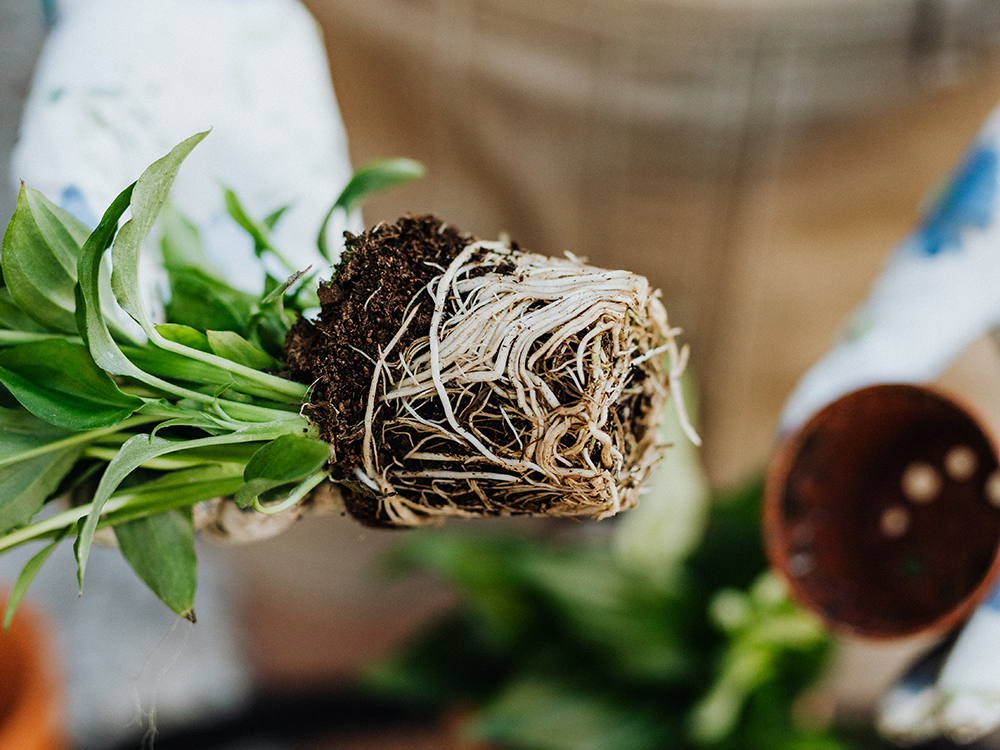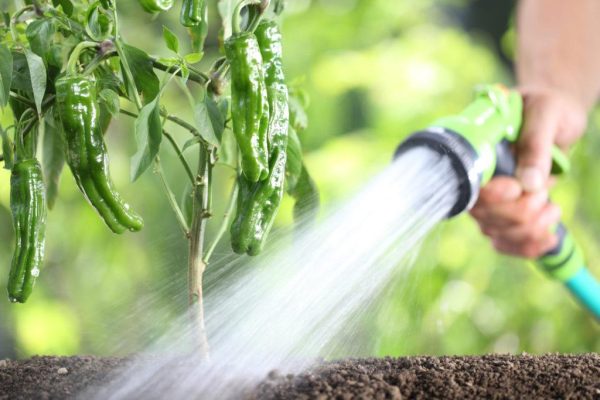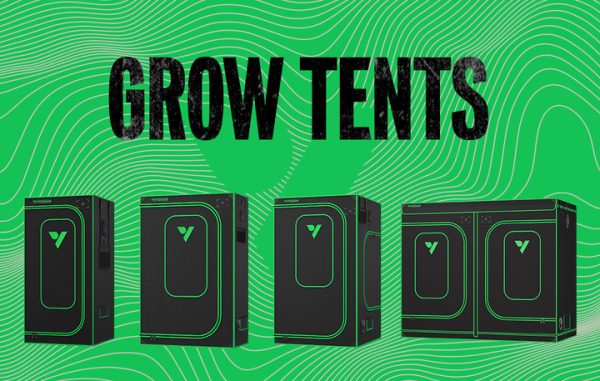Sometimes you will find that your plants seem to grow slowly, which might indicate that there are some health problems with your plants or that the environment is not providing enough support for them. Let’s explore some common problems that your plant might be facing and learn how to fix them!
Main problems and methods
Reason 1 – The root system is unhealthy

The root system is the foundation of plant growth. When your roots don’t have enough oxygen to breathe their normal growth will be interrupted and your plants can become wilted or even stop growing. The biggest cause of root hypoxia is that there is too much water in the soil and oxygen is scarce.
When you plant in a large pot you can easily overwater and drown the roots because larger pots will retain more moisture and in general will encourage you to overwater. Using a fabric pot can effectively avoid this. If your growing medium itself is poorly drained and prone to flooding, you can also improve it by adding a moderate amount of perlite to the soil.
Reason 2 – Lighting problems
Lighting problems can be divided into several categories: insufficient light, heat stress caused by the heat generated by the light, and an unsuitable light spectrum.
Plants perform photosynthesis through light, which supports their growth. In the absence of light, your weed plants will of course grow much slower. Choose the right grow light for your plants based on the size of the tent and the number of plants you plan to grow—a single cannabis plant requires about 25 kilowatt-hours of energy to grow its full cycle.
If you are providing your plants with enough light but your grow lights are placed too close to the plants they may scorch your leaves and cause heat stress to your plants. This can be seen by burn marks on the leaves. Check into whether this is the problem and raise the lights and see how your plants react.
Finally, regarding spectrum, we know that marijuana plants need different colors of light during different growth periods, and if you choose the wrong coloration they won’t get the light they require so their growth will slow. If plants are getting too much blue light you will see the stems start to “stretch” towards the light.
If they have too much red light (during seedling or vegetative stages) the plants will in general grow slowly. We recommend using LED grow lights, as LED lights have a full spectrum and can be adapted to any period your plants are growing.
Reason 3 – Your plants are stressed
We often use some training techniques to improve yields when planting and high-stress training techniques usually cause certain damage to plants. Normally, plants can withstand this stress but if a plant is, say, over-pruned, your plant may spend all its energy repairing itself rather than growing. For autoflowering varieties, do not use any training techniques that involve destroying plants as they are generally weaker and won’t be able to recover easily.
Reason 4 – Nutritional deficiencies

When considering nutrient deficiencies, first check the soil pH, which is the foundation of everything you’ll be doing in the soil. If the pH level is not in the proper range (6-7), plants cannot properly absorb nutrients and your plants won’t grow properly no matter how many nutrients you add.
It’s also possible that nutrient deficiencies are slowing plant growth, although this happens less often in practice. Farmers always want to add as many nutrients as possible so their plants can grow quickly and you’ll likely be doing the same so a lack of nutrients likely will not be the problem.
When your plants are in their pots for about 3 weeks the nutrients in the soil have almost been entirely absorbed by the plants and you need to add the correct amount of nutrients to get them to grow again. The nutrients that Cannabis plants need most are nitrogen (N), phosphorus (P), and potassium (K), as well as more than a dozen other trace elements. Fertilizers produced by big-name manufacturers are already perfect, so you can go to a local nursery or buy any big brand of fertilizer online and use them as they recommend.
Reason 5 – Pests and diseases
Cannabis is very susceptible to a number of infestations, the most common being pests and diseases. If your plants are being eaten by pests or get sick you’ll be facing lower yields or even dying plants.
Once your plants are infected, you need to take immediate steps to minimize the impact. Of course, it is best to prevent pests and diseases in advance by controlling your environment, balancing your humidity levels, making sure you are clean before entering your grow space, and generally cleaning up after yourself. It’s unlikely you’ll have trouble with slugs, but tiny aphids might be something you run into, so be sure to clean up often and even bring in some ladybugs if they get too numerous.
What should I add to the soil to grow plants faster?
1.Compost
Research shows that applying compost can significantly increase crop yields by an average of 14%. Compost not only provides various nutrients plants need but also improves soil structure, increases water retention, and promotes beneficial microbial activity. We recommend applying a 2-4 inch layer of compost to your soil annually.
2. Well-Rotted Animal Manures
Well-aged cow, horse, or chicken manure are excellent organic fertilizers that provide important nutrients like nitrogen, phosphorus, and potassium for plants. According to research from the University of Tennessee, applying cow manure can increase corn yields by over 20%. Be sure to fully compost the manure before application.
3. Specialized Fertilizers
We strongly recommend getting a soil test first to identify which nutrients are deficient in your soil. Based on the results, select an appropriate compound fertilizer and apply it at the recommended rate to meet the plant’s needs for nitrogen, phosphorus, potassium, etc., promoting faster growth.
4. Green Manure Crops
Grow green manure crops like alfalfa, clover, or buckwheat, and till them into the soil when they reach a certain height. This will not only add organic matter and nutrients but also improve soil structure, providing an ideal environment for subsequent crops.
5. Other Soil Additives
In addition to the common amendments above, you can also consider adding humic acid or seaweed extracts rich in micronutrients and plant growth hormones, or biochar products that improve soil aeration and water retention, optimizing soil conditions from multiple angles to promote rapid plant growth.
Wrap up
When our weed plants grow slowly, we first need to observe the plants to determine the reasons for their slow growth and then take corresponding measures to keep our plants healthy.
If you have any questions, please don’t hesitate to reach out to us!
And be sure to check out our other blog posts for useful tips on becoming a great grower!
Subscribe to the Vivosun newsletter for growing tips, grower stories, and special offers, and get 10% off your first order!
We love the new Vivosun Smart Grow System and we are certain that you too will love it once you try it. The smart grow system can be entirely automated, so you can control your grow space and equipment wherever you go. It’s high time we made growing step into a more modern time!
And join our Facebook farmer’s community for even more exclusive contests and prizes!
Download Vivosun App to get 15% off and explore more information!

You may also like:
Knowing Your Roots for Better Plant Health
How to Improve the Soil in Your Garden





